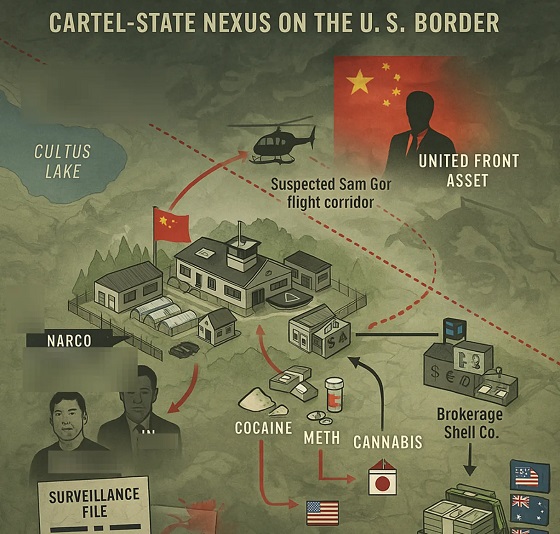Daily Caller
‘Zuck Bucks’ Need To Be Stopped Cold
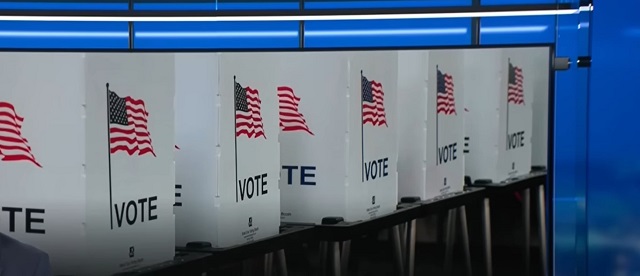
 From the Daily Caller News Foundation
From the Daily Caller News Foundation
By Jason Snead
It is less than 90 days to Election Day, and right on queue the group behind the “Zuck Bucks” campaign of 2020 is back with a new scheme. This time, the Center for Tech and Civic Life (CTCL) is doling out millions in grant dollars to rural election administrators in 19 states.
Election officers beware. The group is trying to turn the government offices that run elections into bastions of partisan progressive activism. Election officials striving for nonpartisanship should steer clear.
CTCL rose to prominence during the unprecedented election of 2020. The group got $350 million from Meta CEO Mark Zuckerberg, which it then funneled disproportionately to swing-state communities that ultimately voted for Joe Biden.
Racine, Wisconsin used its CTCL money to purchase a mobile voting van that in 2022 it deployed to heavily Democrat areas of the city to register voters and collect ballots. Earlier this year, a judge declared that illegal.
After 2020, a majority of states moved to ban or restrict private funding for running election offices, including several on a bipartisan basis. This year, Wisconsin voters approved two constitutional amendments to ban private funding after the scope of CTCL’s involvement was revealed. Even Mark Zuckerberg announced he would no longer back the group’s grants.
But that did not stop CTCL. Instead, it created “Zuck Bucks 2.0,” an $80 million program called the U.S. Alliance for Election Excellence.
Now, CTCL is offering grants to rural counties, saying it is merely helping cash-strapped offices on the eve of a contentious election. Sound familiar?
The sudden interest in flyover country is laughable. In 2020, rural areas got token grants of just $5,000 while urban areas got millions. CTCL claimed that big cities have more voters and therefore need more money. Subsequent analyses showed that blue counties got far money more per voter than red counties.
Perhaps CTCL hopes this move can insulate it against criticism that it is once again influencing elections. Not so fast. Reports indicate that CTCL is setting aside $2.5 million for rural grants.
CTCL is giving $3 million to Clark County, Nevada, for this election cycle alone. Add in the huge grants offered to heavily Democrat DeKalb County, Georgia and Madison, Wisconsin, and CTCL has given nearly three times the grants to just these heavily Democrat areas (located in swing states, no less) than hundreds of rural counties could get combined.
In fairness, CTCL is not wrong that rural areas often need additional resources. But those funds should come from state and local taxpayers, not partisan groups pushing an agenda.
And make no mistake, CTCL has a political agenda. Though it claims to be nonpartisan, it’s founder and executive director is a former Obama Foundation fellow and used to work at a group the Washington Post once labeled the “Democratic party’s Hogwarts for digital wizardry.” CTCL’s donors are just as left-wing, with major liberal organizations like the Skoll Foundation, Democracy Fund, and Arabella Advisors’ New Venture Fund footing its bills.
Small wonder, then, that by this April 28 states had banned or restricted CTCL-style private funding. Over the last few years, residents in communities from Greenwich, Connecticut, to Brunswick County, North Carolina, have opposed election administrators joining ranks with such a partisan group. Ottawa County, Michigan, declined to accept $1.5 million in CTCL funds with the county clerk explaining that accepting the grant could compromise public confidence in elections.
Over the next few months, CTCL will offer hundreds of rural counties “free” money. Many may feel inclined to take it. Before they do, they should know who they are doing business with.
Rural election offices may need additional funding, but turning to partisan groups like CTCL just puts public trust in elections at risk. County officials should treat CTCL’s latest offer of “free” money the way they would treat a windowless van hanging a sign marked “free candy:”
Stay away and warn your friends.
Jason Snead is the Executive Director of Honest Elections Project Action.
Daily Caller
Misguided Climate Policies Create ‘Real Energy Emergency’ And Permit China To Dominate US


From the Daily Caller News Foundation
By Mariane Angela
Interior Secretary Doug Burgum warned on Fox Business Tuesday about America’s deepening energy shortfall and said that misguided climate policies could give China the upper hand in both the global energy race and artificial intelligence development.
House lawmakers voted 246-164, with support from 35 Democrats, to overturn a Biden-era EPA rule that lets California enforce a de facto national ban on gas-powered cars by 2035. During an appearance on “Kudlow,” Burgum said that U.S. energy shortfalls could allow China to outpace America in artificial intelligence and other power-hungry technologies.
“The real energy emergency that we have right now is that we don’t have enough energy in this country. We’re losing the AI arms race to China, and we’ve got to have more energy and more power right now in the country. And so that’s one of the things that we’re focused on right now,” Burgum told host Larry Kudlow.
Burgum blasted California’s aggressive emissions standards, which he said have effectively become national policy.
WATCH:
“Let’s start with California, Larry. That would be a great idea, because there’s 14 other states that followed California. So basically we’re stuck right now. Automakers feel like they’ve got to build two kinds of cars in America, one for California standards and one for the rest of the country,” Burgum said. “Of course, we know that the California standards are based on a bunch of falsehoods around emissions, because if we want zero carbon fuels, it’s much cheaper.”
Burgum took particular aim at electric vehicle subsidies, calling them a boondoggle built on climate ideology. He also called electric vehicle subsidies economically reckless since the cost of avoiding a single ton of carbon dioxide exceeds $900.
“It’s 10 to 15 times cheaper to have zero carbon liquid fuels than it is to subsidize EVs. The EV subsidies, where the real bank was, the thing that was really breaking the bank, over $900 for an avoided tonus of CO2, and all of that built around climate ideology,” Burgum said.
Republican Pennsylvania Rep. John Joyce introduced a resolution under the Congressional Review Act to stop California’s zero-emission vehicle mandate, which several other states have adopted. If the Senate doesn’t act, the Environmental Protection Agency would face a lengthy rulemaking process to reverse the policy that will allow California’s stricter standards to remain in effect for years.
The states that have opted in to California’s auto rules include Colorado, Delaware, Maryland, Massachusetts, New Jersey, New Mexico, New York, Oregon, Rhode Island, Vermont, Washington, and the District of Columbia.
Business
Ted Cruz, Jim Jordan Ramp Up Pressure On Google Parent Company To Deal With ‘Censorship’

From the Daily Caller News Foundation
By Andi Shae Napier
Republican Texas Sen. Ted Cruz and Republican Ohio Rep. Jim Jordan are turning their attention to Google over concerns that the tech giant is censoring users and infringing on Americans’ free speech rights.
Google’s parent company Alphabet, which also owns YouTube, appears to be the GOP’s next Big Tech target. Lawmakers seem to be turning their attention to Alphabet after Mark Zuckerberg’s Meta ended its controversial fact-checking program in favor of a Community Notes system similar to the one used by Elon Musk’s X.
Cruz recently informed reporters of his and fellow senators’ plans to protect free speech.
Dear Readers:
As a nonprofit, we are dependent on the generosity of our readers.
Please consider making a small donation of any amount here. Thank you!
“Stopping online censorship is a major priority for the Commerce Committee,” Cruz said, as reported by Politico. “And we are going to utilize every point of leverage we have to protect free speech online.”
Following his meeting with Alphabet CEO Sundar Pichai last month, Cruz told the outlet, “Big Tech censorship was the single most important topic.”
Jordan, Chairman of the House Judiciary Committee, sent subpoenas to Alphabet and other tech giants such as Rumble, TikTok and Apple in February regarding “compliance with foreign censorship laws, regulations, judicial orders, or other government-initiated efforts” with the intent to discover how foreign governments, or the Biden administration, have limited Americans’ access to free speech.
“Throughout the previous Congress, the Committee expressed concern over YouTube’s censorship of conservatives and political speech,” Jordan wrote in a letter to Pichai in March. “To develop effective legislation, such as the possible enactment of new statutory limits on the executive branch’s ability to work with Big Tech to restrict the circulation of content and deplatform users, the Committee must first understand how and to what extent the executive branch coerced and colluded with companies and other intermediaries to censor speech.”
Jordan subpoenaed tech CEOs in 2023 as well, including Satya Nadella of Microsoft, Tim Cook of Apple and Pichai, among others.
Despite the recent action against the tech giant, the battle stretches back to President Donald Trump’s first administration. Cruz began his investigation of Google in 2019 when he questioned Karan Bhatia, the company’s Vice President for Government Affairs & Public Policy at the time, in a Senate Judiciary Committee hearing. Cruz brought forth a presentation suggesting tech companies, including Google, were straying from free speech and leaning towards censorship.
Even during Congress’ recess, pressure on Google continues to mount as a federal court ruled Thursday that Google’s ad-tech unit violates U.S. antitrust laws and creates an illegal monopoly. This marks the second antitrust ruling against the tech giant as a different court ruled in 2024 that Google abused its dominance of the online search market.
-
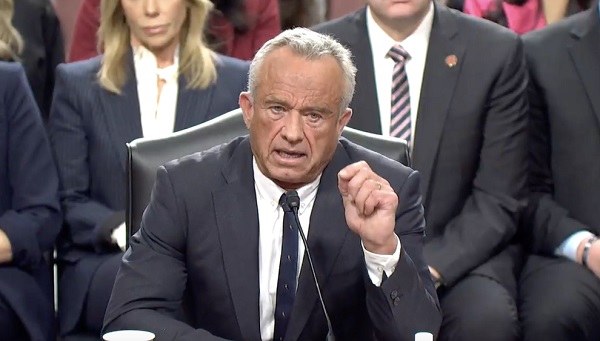
 Autism2 days ago
Autism2 days agoNIH, CMS partner on autism research
-

 Economy1 day ago
Economy1 day agoCanada’s Energy Wealth Is Bleeding South
-
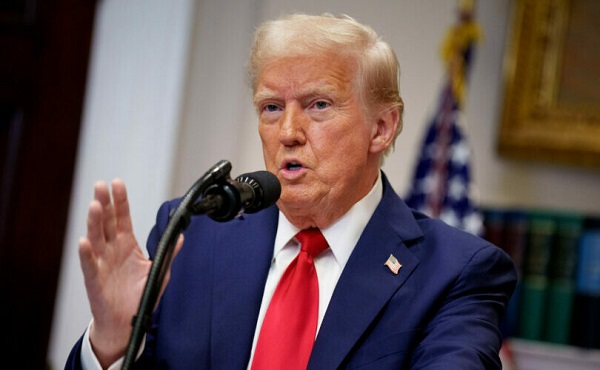
 Business1 day ago
Business1 day agoTrump announces UK will fast-track American products under new deal
-

 Business2 days ago
Business2 days agoInnovative Solutions Like This Plan To Provide Power For Data Centres Will Drive Natural Gas Demand For Decades
-
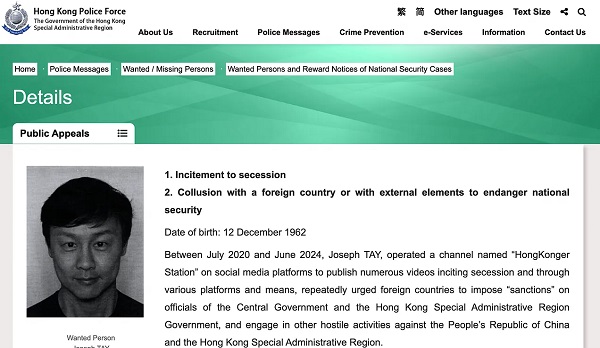
 espionage1 day ago
espionage1 day agoHong Kong Police Detain Relatives of Canadian Candidate Targeted by Beijing Election Interference
-

 Alberta1 day ago
Alberta1 day agoAlberta’s move to ‘activity-based funding’ will improve health care despite naysayer claims
-

 Energy1 day ago
Energy1 day agoOntario Leads the G7 by Building First Small Modular Reactor
-
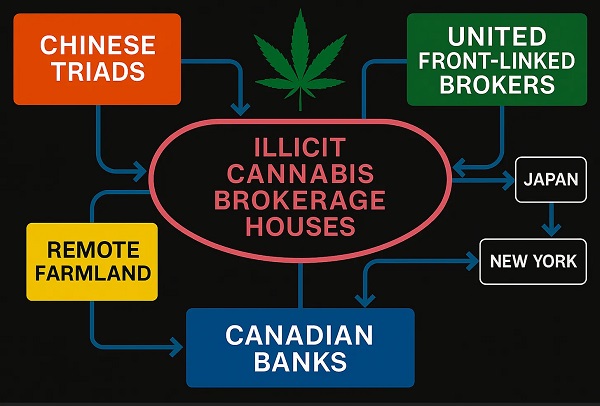
 Crime9 hours ago
Crime9 hours agoHow the CCP’s United Front Turned Canada’s Legal Cannabis Market into a Global Narcotics Brokerage Network





